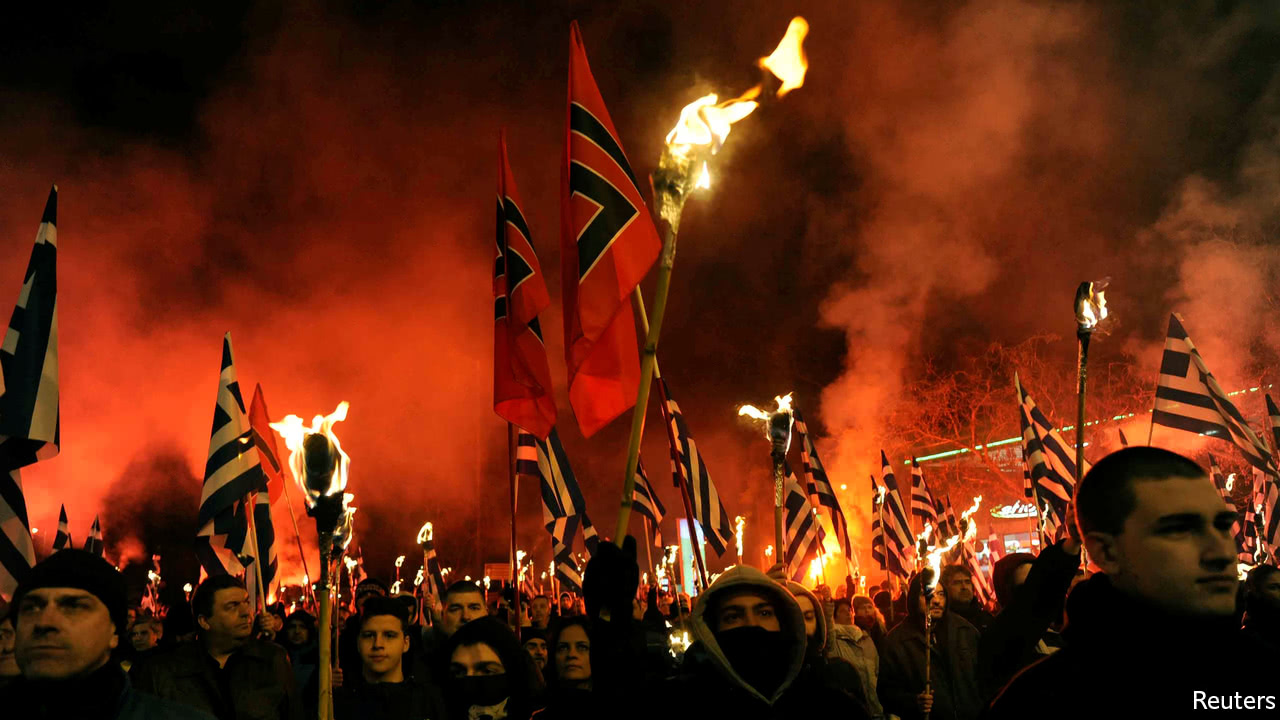 Far-rightists see a revival in south-eastern Europe
Far-rightists see a revival in south-eastern Europe

But after 1999, when NATO bombing forced Serbia to back down, talk of civilisational clashes in the Balkans receded as the region fell under broadly Western influence. Every country in the neighbourhood was either in the European Union or wanted to be. Recently though, religiously inspired nationalism and ultra-nationalism have returned to south-eastern Europe—not yet as a dominant force but as a spectre that is growing more visible.
For a symptom of that, glance at a video which has just been posted by Greece’s far-right Golden Dawn party, whose leaders have been on trial since 2015 on charges of running a criminal organisation. (The accusations relate to attacks on immigrants and activists of the left. They have not dented the party’s passion or zeal. Earlier this month, some 25 supporters of GD were arrested after a scuffle, outside the courthouse, in which a lawyer said she was punched in the face.)
The video celebrates the Greek movement’s consolidation of relations with the Serbian Radical Party, whose founder Vojislav Seselj was tried for war crimes, and eventually acquitted last year, following the post-Yugoslav wars. At an event in Thessaloniki, sharp-suited young men from both parties hailed the establishment of a common front against both Islam and liberal globalisation in their region.
The two far-right parties draw deeply on religious rhetoric. At the event it was noted that leading members of both groups had just paid a joint visit to two of the most conservative monastic houses on the nearby peninsula of Mount Athos: the ultra-zealous Esphigmenou monastery and the Serbian monastery of Hilandar.
Neither Golden Dawn nor the Serbian Radicals are in the mainstream of their respective countries, but they are not irrelevant outsiders either. Golden Dawn has 16 deputies in Greece’s 300-member legislature. The Serbian Radicals took 8% of the vote in last year’s Serbian election, propelling Mr Seselj back into Parliament. Aleksandar Vucic, elected this year as Serbia’s president, began life as a Radical but then broke away in 2008 to form a more moderate political group.
Among the commonalities between Golden Dawn and the Serbian Radicals are a dislike of alien cultures, including those brought by immigrants; an enthusiasm for Vladimir Putin and warmer relations with Russia; and, last year, a positive reaction to the election of Donald Trump. Golden Dawn saw it as a vindication for forces which are “in favour of clean ethnic states” and “in favour of self-sufficiency in the national economy.”
Happily neither the political life of the Balkans, nor even the religious life, begins or ends with these strident voices. But they are undoubtedly being projected with greater confidence, as though for the first time in a couple of decades, history was on their side.
https://www.economist.com/blogs/erasmus/2017/11/resurgent-right



